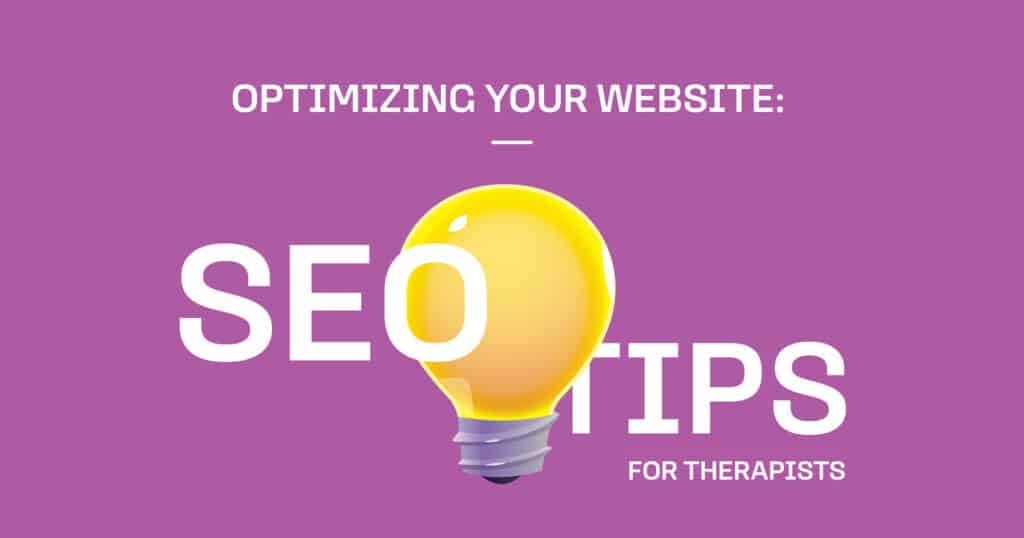In 2024, a strong online presence is crucial for therapists to attract new clients and grow their practices. Search Engine Optimization (SEO) plays a key role in enhancing your website’s visibility and reaching individuals seeking mental health services. This guide provides effective SEO strategies tailored for therapists, covering the latest trends, best practices, and actionable tips to help you optimize your website and stand out in a competitive digital landscape.
Why SEO is Crucial for Therapists
SEO is more than a marketing tool; it’s a vital way to connect with potential clients actively searching for mental health support. Here’s why optimizing your website for search engines is essential:
- Increase Visibility: Improve your website’s ranking on search engines like Google to enhance your presence in search results.
- Build Credibility: Establish yourself as a trustworthy and authoritative source of mental health information.
- Attract Ideal Clients: Reach individuals who are actively seeking therapy services.
- Improve User Experience: Enhance the overall visitor experience on your website, including reducing bounce rates and increasing conversion rates.
Top SEO Tips for Therapists
1. Focus on Local SEO for Better Visibility
Why Local SEO Matters: Most people search for therapy services within their local area. Local SEO ensures that your practice appears in relevant local search results.
Local SEO Strategies:
- Optimize Your Google My Business Listing:
- Example Keywords: “Top Therapists in [Your City],” “Best Counseling Services in [Your Location].”
- Complete Your Profile: Ensure your business name, address, phone number, and hours are accurate. Utilize Google Business Profile for enhanced visibility.
- Add Relevant Categories: Select categories like “Therapist,” “Counselor,” or “Mental Health Clinic.”
- Upload Photos: Add high-quality images of your office and staff.
- Encourage Reviews: Request positive reviews from satisfied clients to boost credibility and enhance Google Maps visibility.
- Create Localized Content:
- Write Blog Posts: Share articles on mental health issues relevant to your community. Address local concerns and search terms.
- Example Topics: “How to Find a Therapist in [Your City],” “Local Mental Health Resources in [Your Area].”
- Write Blog Posts: Share articles on mental health issues relevant to your community. Address local concerns and search terms.
- Build Local Citations:
- Submit to Directories: List your practice on local directories like Yelp, Healthgrades, and Yellow Pages.
- Ensure NAP Consistency: Keep your Name, Address, and Phone number consistent across all listings to improve local SEO.
2. Enhance Your Website’s Technical SEO
Why Technical SEO Matters: Technical SEO ensures search engines can crawl and index your site efficiently, which is crucial for ranking well and improving search visibility.
Technical SEO Best Practices:
- Improve Website Speed:
- Optimize Images: Compress images to reduce file sizes and improve load times.
- Enable Caching: Implement browser caching to speed up page loading.
- Minimize JavaScript and CSS: Remove unnecessary code to enhance performance. Use tools like Google PageSpeed Insights and GTmetrix.
- Ensure Mobile-Friendliness:
- Responsive Design: Use a design that adapts to different devices and screen sizes.
- Mobile-Friendly Test: Check your site’s compatibility with Google’s Mobile-Friendly Test tool.
- Create a Clear Site Structure:
- Organize Content: Use a logical hierarchy for your website’s pages.
- Generate a Sitemap: Submit a sitemap to Google Search Console for better indexing.
- Fix Broken Links:
- Regular Audits: Check for and repair any broken links on your site using tools like Screaming Frog and Broken Link Checker.
3. Optimize On-Page SEO for Relevant Keywords
Why On-Page SEO Matters: On-page SEO helps search engines understand your content and improves user experience on your website. Implement effective keyword research and strategy.
On-Page SEO Techniques:
- Craft Effective Title Tags and Meta Descriptions:
- Title Tags: Include primary keywords and keep them under 60 characters. Example: “SEO Tips for Therapists: How to Optimize Your Website in 2024.”
- Meta Descriptions: Summarize page content and use secondary keywords. Keep descriptions under 160 characters. Example: “Learn top SEO tips for therapists to optimize your website in 2024. Improve visibility in search engine results, attract clients, and grow your practice.”
- Use Header Tags Strategically:
- H1 Tags: Use for main page titles.
- H2 and H3 Tags: Use subheadings to organize content and improve SEO performance.
- Incorporate Keywords Naturally:
- Primary Keywords: Use phrases like “SEO for Therapists” and “Website Optimization for Mental Health Professionals.”
- Secondary Keywords: Include variations like “Therapist SEO best practices” and “Mental health SEO tips.”
- Optimize Images:
- Descriptive Alt Text: Use relevant keywords to describe your images.
- Image Compression: Reduce image size for faster loading.
4. Create High-Quality, Engaging Content
Why Content Creation Matters: Quality content establishes you as a subject matter expert and engages visitors. Focus on valuable content and content marketing strategies.
Content Creation Strategies:
- Write Educational Blog Posts:
- Address Common Issues: Provide valuable insights on mental health topics.
- Example Topics: “What to Expect from Your First Therapy Session,” “Tips for Managing Anxiety and Stress.”
- Address Common Issues: Provide valuable insights on mental health topics.
- Develop Resourceful Guides and E-books:
- Offer In-Depth Information: Create comprehensive resources on mental health topics.
- Example Guides: “Guide to Cognitive Behavioral Therapy,” “How to Choose the Right Therapist for You.”
- Offer In-Depth Information: Create comprehensive resources on mental health topics.
- Publish Case Studies and Testimonials:
- Showcase Success Stories: Share anonymized case studies and positive client feedback to build trust and showcase your expertise.
- Use Engaging Formats:
- Infographics and Videos: Add visual content to make your blog posts more engaging. Use tools like Canva for infographics and YouTube for videos.
5. Build High-Quality Backlinks
Why Backlinks Matter: Backlinks from reputable sites signal to search engines that your content is valuable. Focus on link-building strategies to obtain high-quality backlinks.
Backlink Building Strategies:
- Guest Post on Reputable Blogs:
- Write for Mental Health Sites: Offer to write articles for established mental health or wellness blogs.
- Example: “Guest Post on [Popular Mental Health Blog].”
- Write for Mental Health Sites: Offer to write articles for established mental health or wellness blogs.
- Collaborate with Other Professionals:
- Networking: Partner with other therapists or mental health organizations for mutual link-building opportunities.
- Engage in Online Communities:
- Join Forums and Groups: Participate in mental health and social media groups.
- Example: Share your blog posts and link back to your site to increase visibility in search results.
- Join Forums and Groups: Participate in mental health and social media groups.
- Submit to Mental Health Directories:
- Get Listed: Add your site to relevant therapist and mental health directories to improve search visibility.
FAQs
Q1: What are the best local SEO strategies for therapists? A1: Optimize your Google My Business listing, create localized content, and build local citations. Ensure consistency with Google Business Profile.
Q2: How can I improve my website’s technical SEO? A2: Focus on website speed, mobile-friendliness, clear site structure, and fixing broken links. Utilize SEO tools like Google PageSpeed Insights.
Q3: What are the most effective on-page SEO techniques for therapists? A3: Use relevant keywords, craft effective title tags and meta descriptions, and optimize images to enhance on-page SEO.
Q4: How can high-quality content benefit my therapy practice? A4: High-quality content establishes your expertise, engages visitors, and helps you rank higher in search engine results. Focus on content creation and delivering value.
Q5: What are the best methods for building backlinks for a therapy website? A5: Engage in guest posting, collaborate with other professionals, and participate in online communities to build high-quality backlinks.
Conclusion
Optimizing your website with effective SEO strategies is essential for therapists in 2024. By focusing on local SEO, enhancing technical aspects, optimizing on-page elements, creating high-quality content, and building valuable backlinks, you can significantly improve your online visibility and attract more clients. Stay updated with the latest SEO trends and continuously refine your approach to achieve the best results for your mental health practice. Implement these tips to ensure your website stands out in the competitive digital landscape and helps you grow your therapy practice.








